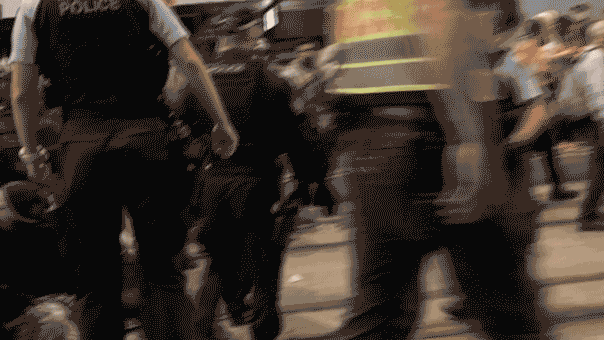
Facing growing crime and out-of-control violence, Puerto Rico is slapping offenders with harsher sentences.
The governor of the U.S. island territory, Luis Fortuño, signed an update to the penal code on Monday that will boost sentences for murder, assault and other crimes.
The new penal code establishes fixed sentences on a range of offenses that are substantially higher than those that have been in place since the last time the laws were updated in 2004 and, in some cases, more in line with the 1974 version, Fortuño said.
"These penalties are both fixed and more severe and that's what we are looking for," the governor, surrounded by half a dozen people who lost family members to violent crime or were themselves victims. "We want to bring peace of mind back to the good and decent people of Puerto Rico."
Puerto Rico had a record number of homicides last year and the island has been struggling with rising crime for several years, largely as a result of the island's role as a transshipment point for South American drugs bound for the U.S. mainland. Though random violence is relatively rare, polls in the territory consistently show crime as the leading concern and an anti-crime march planned for Aug. 12 is expected to draw tens of thousands of people.
The governor, who is running for re-election this year, has twice replaced the island's police chief and is supporting a ballot referendum that would end a provision of Puerto Rican law that grants the right to post bail to anyone charged with a crime, including rape and murder.
The updated penal code raises the sentence for second-degree homicide to 50 years from a range of 15-25 years and the sentence for negligent homicide to 15 years from a range of 8-15 years. The sentence for first-degree homicide would remain 99 years, unchanged since the 1974 revision. Puerto Rico does not have the death penalty but people charged under U.S. federal law on the island can face capital punishment and be denied bail.
Other amendments to the new penal code increase the sentences for assault, kidnapping, robbery, sexual assault and the production of child pornography as well as other offenses.
The American Civil Liberties Union and others have criticized a provision that restricts protests that block public buildings and interfere with local government, measures that appear to be aimed at demonstrations in recent years at the University of Puerto Rico and outside the Capitol building.
William Ramírez, the executive director of the ACLU in Puerto Rico, said the restrictions are unconstitutional and the group is considering a legal challenge.
The governor denied the revised penal code will infringe on the right to protest and said the changes will give local authorities more tools to fight crime. "We won't allow the criminals to take over Puerto Rico."
Luis Romero Font, the leader of an anti-crime group whose son was killed during a robbery last year, said he welcomed the higher sentences as part of a broader approach to crime in the island.
"Will this lead to an end to the violence? Not by itself," said Romero, who attended the signing ceremony for new penal code. "But you have to cut the impunity. If the impunity continues, it will just lead to more crime."
Based on reporting by the Associated Press.
Follow us on twitter.com/foxnewslatino
Like us at facebook.com/foxnewslatino








































